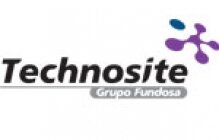“New Technologies are the great ally of inclusive education” - Interview with Isabel Martínez Lozano, ONCE Foundation (2/2)
Thu, 03/10/2013
incluD-ed: What have been your personal and the ONCE Foundation´s main successes in the fields of technology and more broadly, with people with disabilities?
Isabel Martínez Lozano: Our biggest success in the field of new technologies at the ONCE Foundation has been without doubt TECHNOSITE. It is a company where 70 % of the work force is made up by people with disabilities, all of whom are specialised in accessibility issues and new technologies. It is also a company at the forefront of the accessible technology sector in Spain. It designs web pages and applications for accessibility; offers consulting services and is a major innovator in a field of vital importance for the autonomy and freedom of people with disabilities.
incluD-ed: Are there any upcoming tendencies in the field of new technologies and inclusive education?
Isabel Martínez Lozano: Fortunately, both in education and employment new technologies have opened a world of opportunity for people with disabilities, something they did not have before. Accessible computers and mice, voice programmes, the accessibility of the Smartphone are all revolutionary for people with different physical and sensory disabilities. These tools are now being used in the education sector and from the ONCE Foundation we strive to facilitate access to these technologies.
incluD-ed: How would you evaluate the importance of new technologies in the future, for inclusion of people with disabilities and, specifically, for students with special educational needs?
Isabel Martínez Lozano: New technology has been a key factor for students with particular disabilities, especially sensory, and will continue to play a major role in helping students advance in their studies. Students with intellectual disabilities are also benefiting from this and will be able to continue improving their cognitive skills. NTs are without doubt the great ally of inclusive education and are a vital element for promoting equality of opportunity as they place people with disabilities in a position of full participation through the use of technological tools (Naturally Speaking, etc.). This is yet another element of universal accessibility and we mustn’t forget that by improving universal accessibility, we are bettering inclusion for society as a whole.
incluD-ed: To conclude, at a European level, what do you think is still needed to promote inclusion and inclusive education?
Isabel Martínez Lozano: We still have a lot of work ahead notwithstanding all we have done so far. The first step is to do away with segregated education, and although the ratios are very different in different countries, we must insist on this objective, clearly stated by the Convention. Internal laws and regulations need to be improved in certain countries. Teacher support programmes and policies need strengthening. Without the necessary support, students will not progress adequately. More training is needed both for teachers and the educational community in general. Accessibility needs to be guaranteed and accessible technology introduced into the classroom. Other areas which require attention are mobility and European exchange programmes.
incluD-ed: How do you see Europe 20 years from now? Can you tell us about your vision of Europe in terms of inclusion?
Isabel Martínez Lozano: In the last 50 years, Europe has been an example of social welfare throughout the world. If there is anything we can be proud of, it is our European social model. It has allowed us to advance more than ever before, and has guaranteed long periods of relative peace and growth. We are proof that it is indeed possible to grow and guarantee equity and equal opportunities and I believe this has to be the route we continue to follow in Europe. I hope we reach the objectives pinpointed in the 2020 Strategy, approved by the EU, and in this sense I also hope we don’t lower our guard in relation to our social protection standards, especially those which guarantee dignity of collectives with special difficulties. Today, Europe is a mixed race society, of men and women, and where people with disabilities are guaranteed equal opportunities and their right to access public spaces. In 20 years from now however, we need to improve the education indicators which, are still quite low. Those of us with disabilities must reach similar levels of education to the standard in middle school and university. Access to public spaces and political participation must also become more permeable for this collective. We need to be in all these areas and government and parliamentary photographs should reflect the diversity of our society.

















